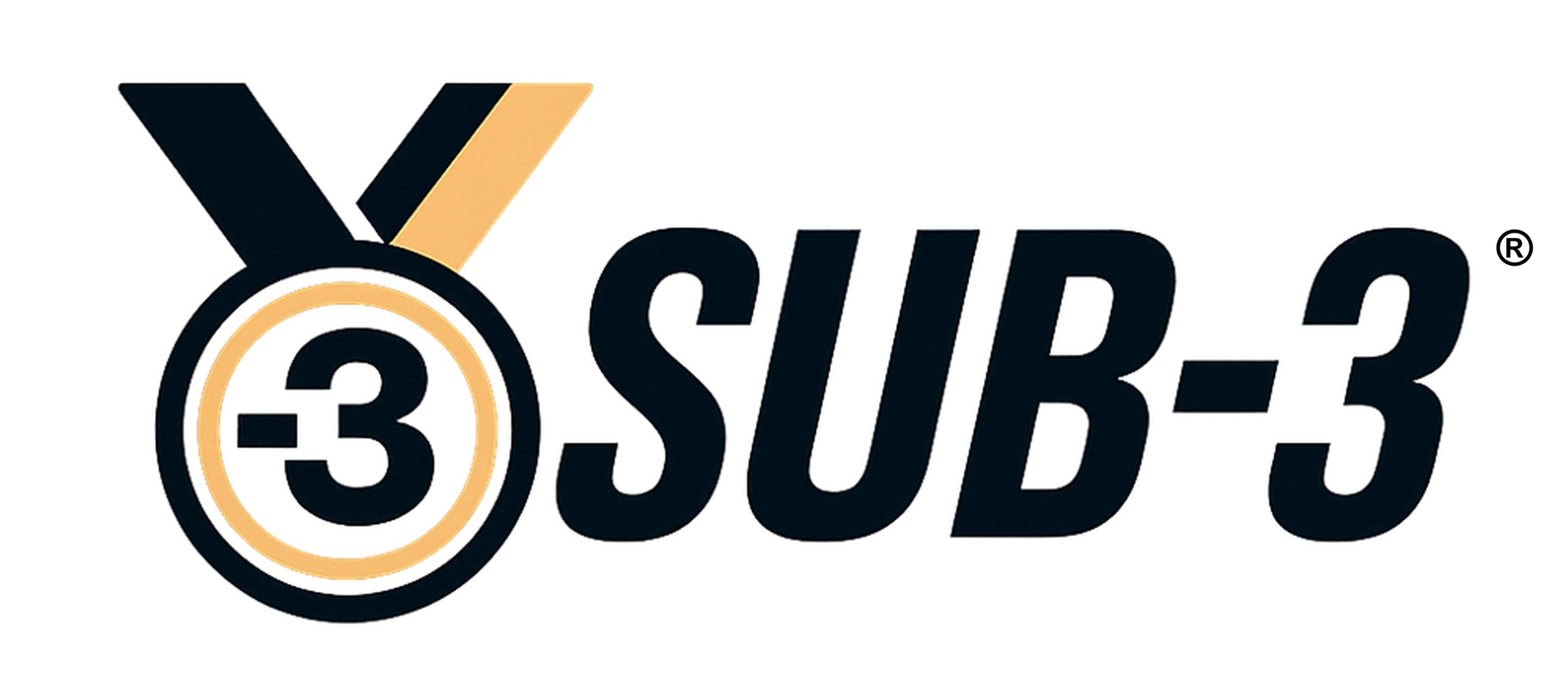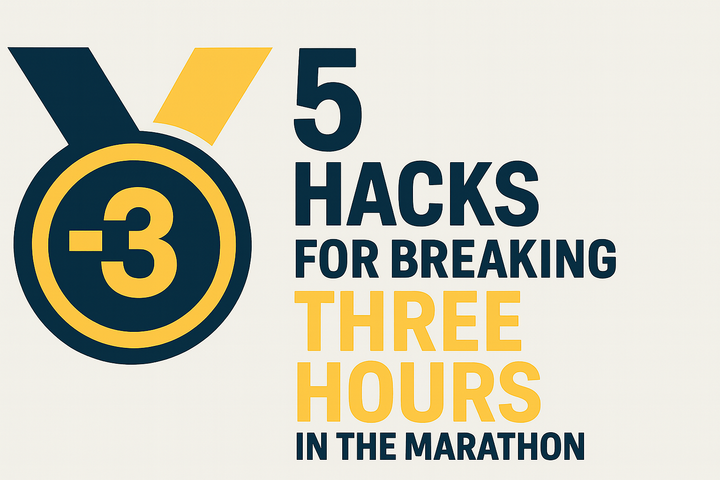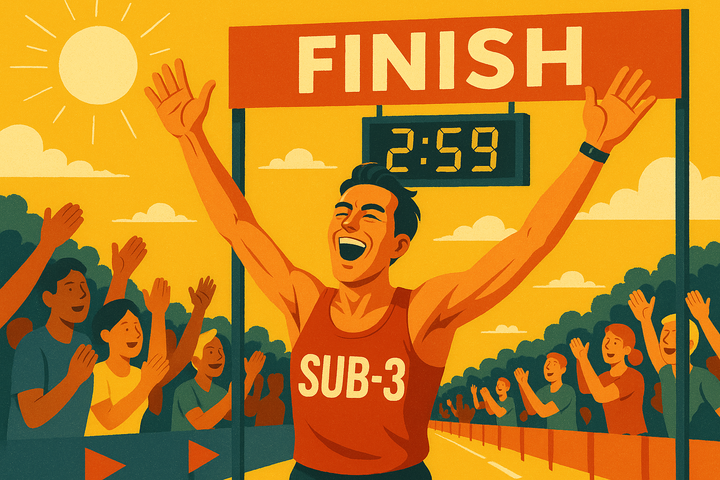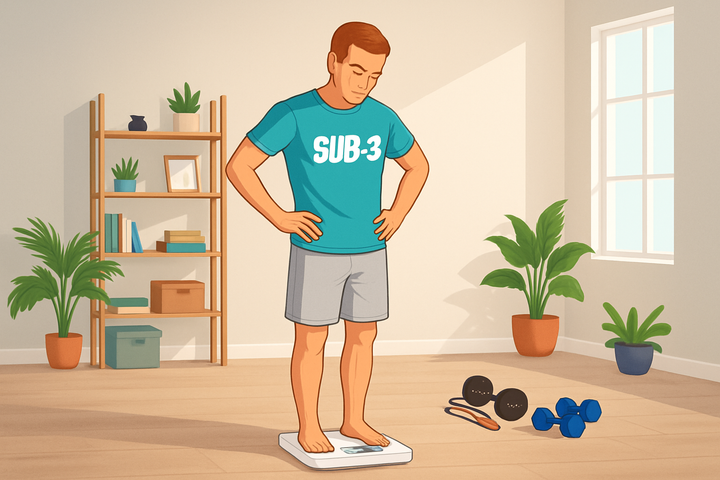Mantras for a sub-3 marathon (even if you're not the mantra type)
If mantras work for someone as unmystical as me, they might just help you push through mile 23 too.
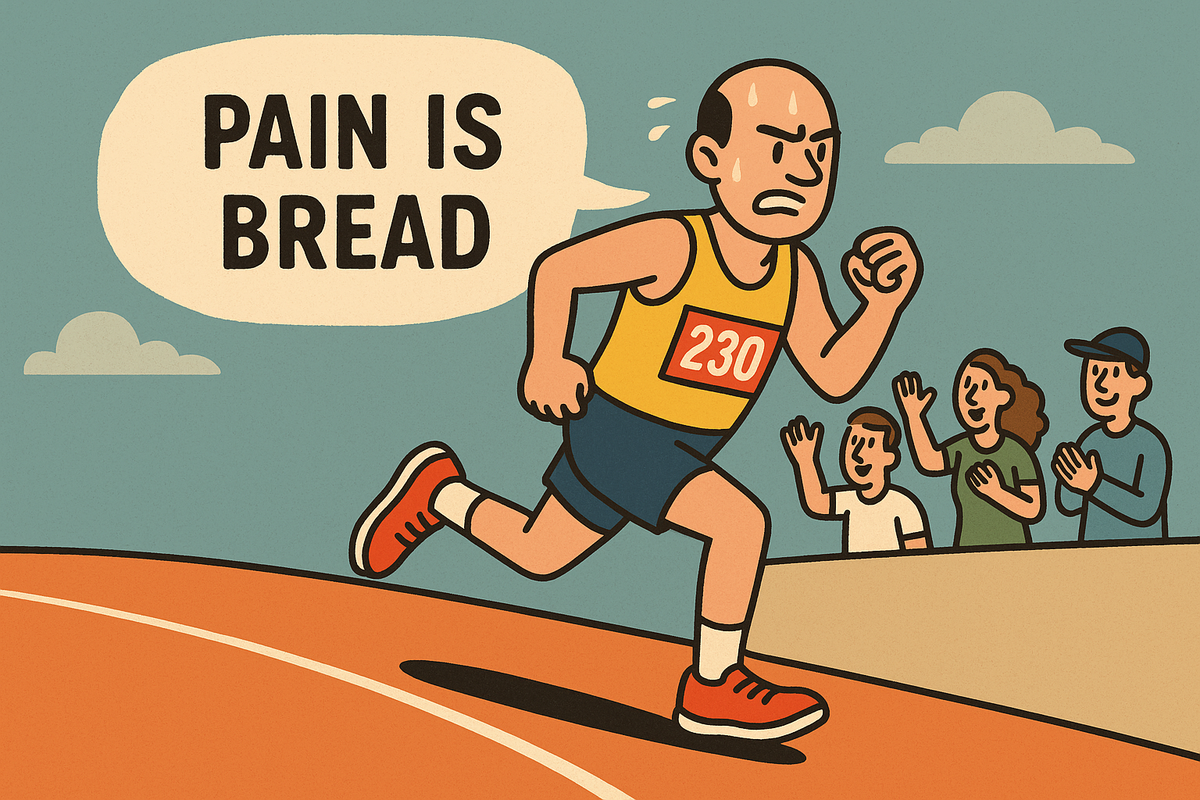
In day-to-day life, I’m the least “mantra-y” person imaginable. I’m not the meditative type. I’m quite intense. Analytical. Focused. The idea of whispering affirmations or repeating sacred syllables has always struck me as slightly ridiculous.
But something strange happens in the middle of a marathon — especially when the going gets really tough. Around mile 20, when your body is screaming and your brain starts to bargain, a well-placed mantra can cut through the chaos — like a hand on the shoulder, giving you a gentle push to keep going.
For me, they don’t arrive by design. They emerge like earworms. Repetitive, rhythmic, insistent. And in recent years, I’ve found them genuinely helpful — not just as distractions, but as cues to unlock something deeper.
“Gas in the tank”
The first one that stuck came from a coach. I was running a 10-mile race that ended in a brutal final stretch, and he’d drummed into me the phrase: “Gas in the tank.” Not in a vague motivational sense — it was a directive. A reminder that I’d trained hard, that there was energy left, and that my brain was lying to me about how bad things were. That simple phrase - gas in the tank - carried me to a PB.
“Pain is bread”
The next one came from a far less likely source: my then six-year-old son. On a trip to France, he was utterly bemused by the fact that “pain” means “bread.” So he asked me, completely straight-faced: “Daddy, is it true that in France, pain is bread?” I corrected his pronunciation, of course. But the phrase stuck. Now, in the depths of a marathon, I sometimes find myself grinning like a lunatic while muttering, “Pain is bread.” It reminds me that pain isn’t always a warning. Often it’s just the load you carry on the way to sub-3.
“Om Namo Narayanaya”
And then there’s the full-blown mantra — the actual mantra — I never expected to adopt. I always finish my race playlists with the same song: Narayan by The Prodigy. It opens with a panicky, looping rhythm that seems to circle endlessly, building tension — and then releases into a trancey, primal chant: “Om Namo Narayanaya.” I’ve known it for 28 years without knowing what it meant. (Apparently it’s a Hindu invocation to the god Vishnu — the preserver.) For me, it’s just a signal. Goosebumps. Tunnel vision. That switch in my head that says: time to give it everything.
Why mantras work
There’s good evidence that this isn’t just fluff. Sport psychologists have long studied motivational self-talk — short, internal phrases used by athletes to manage effort, focus, and pain. Research suggests that repeating task-relevant cues (“relax and go,” “you’ve got this,” “drive your knees”) can measurably improve endurance, perceived exertion, and pacing strategy. It’s especially effective when rehearsed ahead of time — but even spontaneous mantras can re-centre you, distract from fatigue, and restore rhythm.
Some mantras, like “pain is bread,” serve more as dissociation tools — pulling your brain out of the discomfort loop. Others, like “gas in the tank,” are affirmations of capability. And some, like Narayan, work on an emotional or sensory level — tapping memory and muscle simultaneously.
How to find your running mantra
There’s no formula. Mantras that work often emerge organically — something a coach once said, a lyric that hits at the right moment, or even a joke from your kid. The key is that it resonates for you. It should be short, repeatable, and emotionally sticky. Try saying it out loud on a run. If it makes you feel stronger, lighter, or more focused — you’ve found it.
The takeaway
I’m still not a mantra person. I don’t sit cross-legged before races or chant in warm-ups. But I’ve learned that in the heart of a hard effort, a simple phrase — personal, odd, maybe even slightly silly — can unlock surprising strength.
So if you’re pushing for sub-3, maybe experiment with your own. You don’t need to force it. If it works for someone as unmystical as me, it might just work for you too.
Finding this useful? Help keep Sub-3 running — support us with a coffee.
